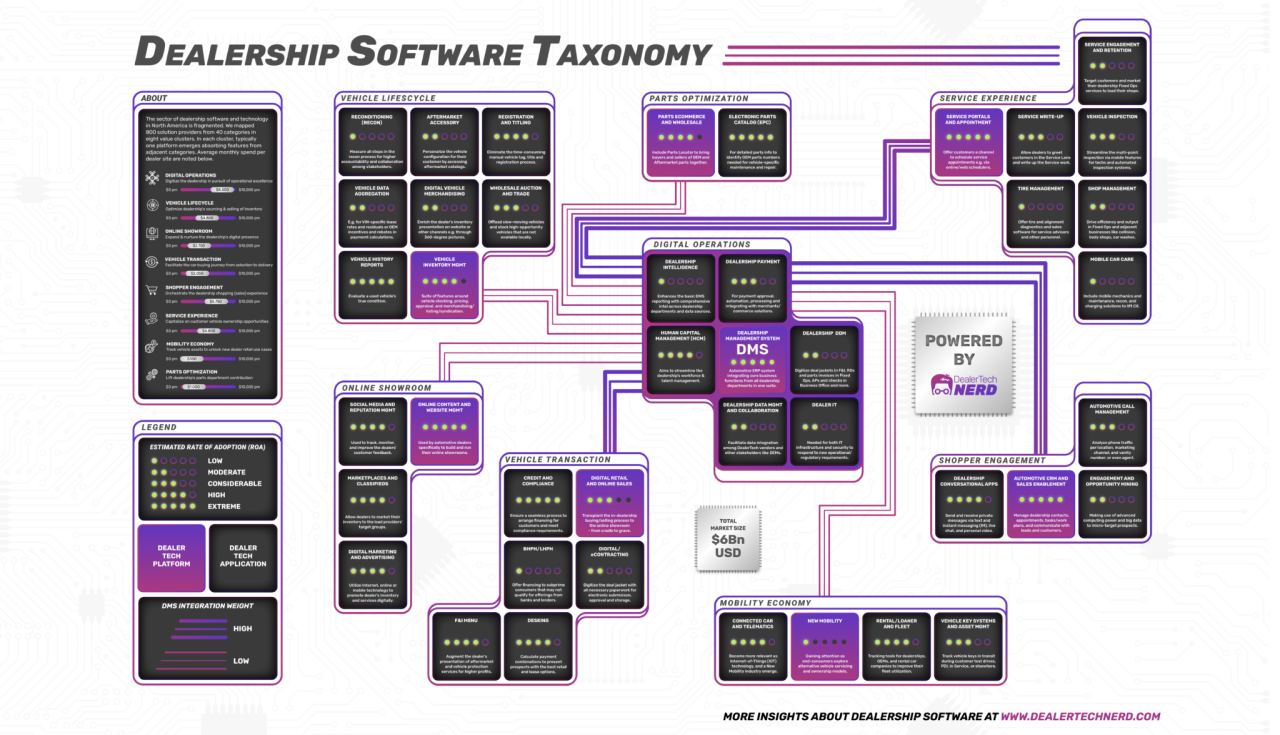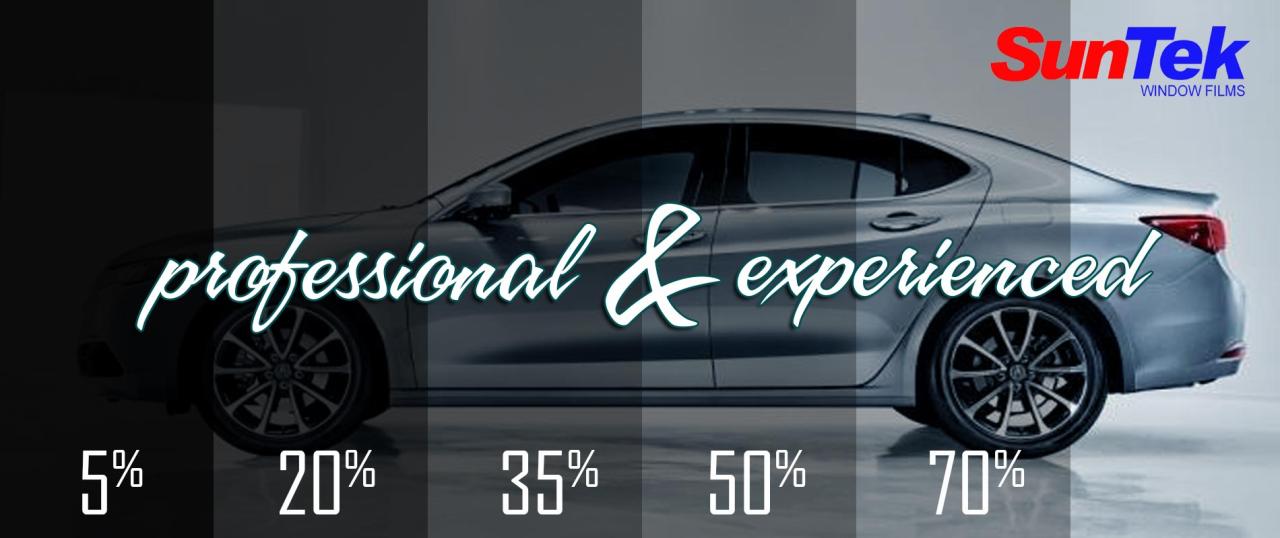Dealer Technology Solutions: Transforming the Automotive Industry
Dealer technology solutions are revolutionizing the automotive industry, transforming the way dealerships operate and customers interact with them. From streamlined inventory management and enhanced customer relationship management to data-driven insights […]

Dealer technology solutions are revolutionizing the automotive industry, transforming the way dealerships operate and customers interact with them. From streamlined inventory management and enhanced customer relationship management to data-driven insights and personalized marketing campaigns, technology is empowering dealerships to thrive in a rapidly evolving marketplace.
This comprehensive guide explores the evolution of dealer technology, highlighting key solutions, and showcasing how these innovations are shaping the future of the automotive landscape. We delve into the impact of digital transformation, examine the benefits of adopting technology-driven approaches, and discuss how dealerships can leverage data analytics to gain a competitive edge.
The Evolution of Dealer Technology

The automotive industry has witnessed a dramatic transformation over the years, driven by technological advancements that have significantly impacted how dealerships operate. From the early days of manual processes to the current era of digital integration, dealer technology has evolved to meet the changing needs of customers and the industry itself.
Key Milestones in Dealer Technology
The evolution of dealer technology can be traced back to the early days of the automotive industry. Key milestones have marked significant advancements in dealer operations, enhancing efficiency, customer experience, and overall business performance.
- Early 20th Century: The introduction of the automobile led to the emergence of dealerships, initially focused on basic sales and service functions. These dealerships relied heavily on manual processes, including paper-based inventory management, customer records, and financial transactions.
- Mid-20th Century: Technological advancements, such as the introduction of computers and telephones, began to transform dealer operations. Dealerships started using computers for inventory management, customer relationship management (CRM), and financial reporting.
- Late 20th Century: The advent of the internet and the rise of e-commerce brought significant changes to the automotive industry. Dealerships started establishing online presences, offering online inventory browsing, and engaging with customers through digital channels.
- 21st Century: The digital transformation of the automotive industry accelerated with the introduction of smartphones, social media, and cloud computing. Dealerships adopted new technologies, such as digital marketing, mobile apps, and data analytics, to enhance customer engagement, streamline operations, and improve sales performance.
Impact of Digital Transformation
The digital transformation of the automotive industry has profoundly impacted dealer operations, leading to significant changes in how dealerships interact with customers, manage inventory, and conduct business.
- Enhanced Customer Experience: Digital technologies have enabled dealerships to provide a more personalized and convenient customer experience. Online tools, mobile apps, and digital communication channels have empowered customers to research vehicles, schedule appointments, and access information at their convenience.
- Streamlined Operations: Dealer management systems (DMS) have revolutionized dealership operations, automating processes such as inventory management, customer relationship management, and financial reporting. These systems have improved efficiency, reduced errors, and provided real-time insights into dealership performance.
- Increased Sales and Marketing Efficiency: Digital marketing tools and data analytics have empowered dealerships to target potential customers more effectively, track campaign performance, and measure return on investment. This has led to increased sales and marketing efficiency, enabling dealerships to reach a wider audience and generate more leads.
Traditional Dealer Practices vs. Modern Technology-Driven Approaches
The adoption of technology has led to a significant shift from traditional dealer practices to modern, technology-driven approaches. This shift has resulted in more efficient, customer-centric, and data-driven operations.
| Traditional Dealer Practices | Modern Technology-Driven Approaches |
|---|---|
| Manual inventory management, relying on physical stock checks and paper-based records. | Real-time inventory tracking using DMS, providing accurate and up-to-date information on vehicle availability. |
| Limited customer communication channels, primarily through phone calls and emails. | Multi-channel customer engagement through websites, mobile apps, social media, and digital marketing campaigns. |
| Limited data collection and analysis, relying on anecdotal evidence and intuition. | Data-driven decision-making using analytics tools to track customer behavior, sales performance, and market trends. |
| Limited focus on customer experience, prioritizing sales transactions over customer satisfaction. | Customer-centric approach, prioritizing customer satisfaction and building long-term relationships. |
Key Technology Solutions for Dealerships: Dealer Technology Solutions

Dealerships are constantly seeking ways to streamline operations, enhance customer experiences, and boost profitability. Technology plays a crucial role in achieving these goals by automating processes, improving communication, and providing valuable insights. This section explores essential technology solutions used by dealerships, highlighting their functionalities and benefits.
Customer Relationship Management (CRM)
A CRM system is a powerful tool for managing customer interactions and relationships. It centralizes customer data, tracks interactions, and provides insights to personalize marketing efforts and improve customer service.
For example, a CRM system can help dealerships:
* Track customer interactions: From initial inquiries to service appointments, all customer interactions are recorded, providing a complete history.
* Segment customers: Dealerships can segment customers based on demographics, purchase history, and other criteria to tailor marketing campaigns and offers.
* Personalize communications: CRM systems enable personalized emails, text messages, and other communications based on customer preferences and needs.
* Improve customer service: By providing a comprehensive view of customer interactions, CRM systems empower service advisors to address customer concerns effectively.
Dealer Management System (DMS)
A DMS is a comprehensive software solution that manages various aspects of dealership operations, including sales, finance, service, and parts.
Here’s how DMS systems benefit dealerships:
* Streamline operations: DMS systems automate tasks such as inventory management, invoicing, and reporting, reducing manual work and improving efficiency.
* Improve data accuracy: Centralized data management ensures consistent and accurate information across departments.
* Increase profitability: DMS systems provide real-time insights into sales performance, service utilization, and other key metrics, allowing dealerships to identify areas for improvement and maximize profits.
* Enhance customer satisfaction: DMS systems facilitate seamless customer interactions by providing access to vehicle history, service records, and other relevant information.
Inventory Management
Effective inventory management is essential for dealerships to optimize stock levels, reduce costs, and meet customer demand. Technology solutions like inventory management software can help dealerships:
* Track inventory levels: Real-time tracking of inventory levels across all locations ensures accurate data for decision-making.
* Manage stock orders: Automated ordering systems optimize stock levels based on demand and sales forecasts, reducing inventory holding costs.
* Minimize stockouts: Proactive inventory management helps dealerships avoid stockouts, ensuring customer satisfaction and maximizing sales opportunities.
* Control costs: Efficient inventory management reduces waste and minimizes the risk of obsolescence, leading to significant cost savings.
Marketing Automation
Marketing automation tools help dealerships automate marketing tasks, personalize communications, and measure campaign effectiveness.
Here’s how marketing automation benefits dealerships:
* Targeted marketing: Automate email campaigns, social media posts, and other marketing efforts based on customer segmentation and behavior.
* Personalized communications: Deliver personalized content and offers based on customer preferences and interactions.
* Measure campaign performance: Track key metrics such as open rates, click-through rates, and conversions to optimize campaigns and improve ROI.
* Free up time: Automate repetitive tasks, allowing marketing teams to focus on strategic initiatives and creative content.
Popular Technology Solutions and Key Features
| Category | Solution | Key Features |
|—|—|—|
| CRM | Salesforce | Customer segmentation, personalized communication, lead management, sales pipeline tracking |
| DMS | CDK Global | Inventory management, sales and finance processing, service scheduling, parts ordering |
| Inventory Management | AutoTrader | Real-time inventory tracking, automated ordering, stock level optimization |
| Marketing Automation | HubSpot | Email marketing, social media management, landing page creation, analytics |
The Future of Dealer Technology

The automotive industry is on the cusp of a technological revolution, driven by the rapid adoption of innovative solutions that are transforming how dealerships operate and interact with customers. From artificial intelligence (AI) to virtual reality (VR), these advancements are poised to redefine the car-buying experience, streamline dealership processes, and enhance customer satisfaction.
The Impact of AI on Dealer Operations, Dealer technology solutions
AI is rapidly changing the way dealerships operate by automating tasks, improving efficiency, and providing valuable insights. AI-powered chatbots can handle routine customer inquiries, freeing up staff to focus on more complex tasks. AI algorithms can analyze customer data to predict purchasing behavior, personalize marketing campaigns, and optimize inventory management. For example, AI can identify patterns in customer preferences, such as the types of vehicles they are interested in, their preferred financing options, and their preferred communication channels. This information can then be used to tailor marketing messages, personalize website content, and offer targeted promotions.
The Rise of Virtual Reality in the Dealership
VR is emerging as a powerful tool for dealerships to enhance the customer experience and provide immersive product demonstrations. VR allows customers to virtually explore and interact with vehicles in a realistic and engaging way, providing a more comprehensive and personalized experience. Dealerships can create VR showrooms that allow customers to browse and compare vehicles, test drive them in a simulated environment, and customize their features and options. For instance, a customer can virtually test drive a new SUV on a winding mountain road or experience the interior of a luxury sedan in a virtual showroom setting.
Blockchain: Transforming Transparency and Security
Blockchain technology is revolutionizing the automotive industry by introducing a new level of transparency and security to various processes. Blockchain can be used to track vehicle ownership, verify vehicle history, and secure transactions, enhancing trust and accountability. Dealerships can leverage blockchain to streamline the buying and selling process, reducing fraud and improving efficiency. For example, blockchain can be used to create a tamper-proof record of a vehicle’s service history, ensuring that customers have access to accurate and reliable information. It can also be used to secure payments and transactions, reducing the risk of fraud and ensuring the integrity of financial data.
A Glimpse into the Future Dealership
Imagine a dealership where customers can interact with AI-powered virtual assistants that provide personalized recommendations and answer their questions in real time. Customers can use VR headsets to experience a virtual test drive of their desired vehicle, customizing the exterior and interior features to their liking. The dealership’s inventory management system is powered by AI, ensuring that the right vehicles are available at the right time. Blockchain technology secures all transactions, ensuring transparency and trust. This futuristic dealership offers a seamless and personalized experience, leveraging technology to cater to the needs and preferences of each customer.
Final Thoughts
As the automotive industry continues to embrace digital transformation, dealer technology solutions will play an increasingly vital role in driving success. By understanding the latest advancements and adopting innovative solutions, dealerships can enhance customer experiences, optimize operations, and navigate the ever-changing market with confidence.
Dealer technology solutions are essential for staying ahead in today’s competitive automotive landscape. One such solution that can make a significant impact is landmark technology , which streamlines operations and enhances customer experiences. By implementing innovative dealer technology solutions, dealerships can optimize their processes, improve efficiency, and ultimately drive greater success.









